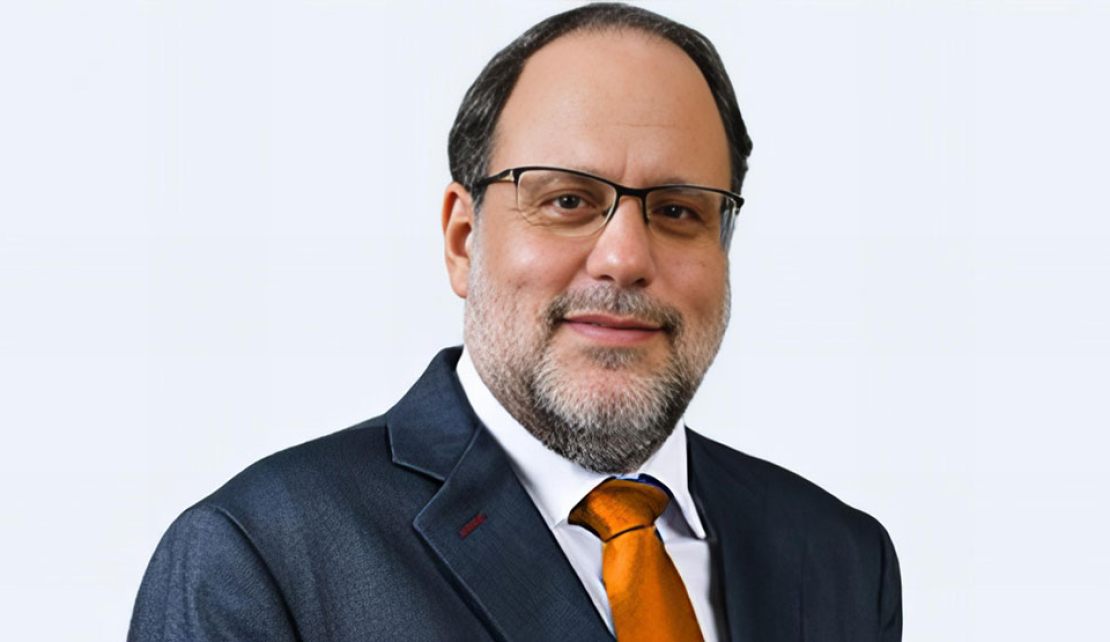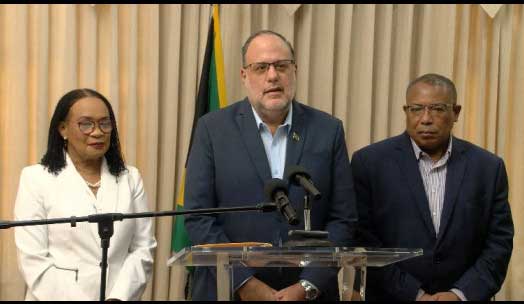JAMAICA | Golding demands a clean break with the Monarchy to include the Privy Council

KINGSTON, Jamaica, May 15, 2024 - Adding to the unfolding discourse on Jamaica's constitutional reform, Leader of the Opposition Mark J. Golding has spotlighted several critical concerns within the Report of the Constitutional Reform Committee (CRC).
Golding's detailed commentary has been vocal about maintaining Jamaica's official name simply as "Jamaica" rather than changing it to "the Republic of Jamaica." He underscored this during a media briefing at the People's National Party's headquarters in St. Andrew.
Furthermore, Golding articulated a staunch position against adopting a phased approach to removing the British Monarch as head of state and the Privy Council as the final Court of Appeal. Instead, he advocated for a simultaneous transition to the Caribbean Court of Justice (CCJ) as the final court.
This stance reflects a broader resistance within his party against using a referendum to decide on the country’s final appellate court, suggesting that such an approach could deepen political divides unnecessarily.
"The process of removing the Privy Council and installing the CCJ as our final court has to be handled by Parliament," Golding insisted. He argued that a referendum would bypass the necessary parliamentary procedures and potentially violate the constitution.

He further pointed out the limited accessibility of the Privy Council to ordinary Jamaicans, describing it as an "untenable situation" that has persisted from the era of slavery to the present. "Very few cases go to the Privy Council from Jamaica each year," he stated, advocating for immediate action to make the CCJ accessible as the final court of appeal to ensure justice for Jamaicans.
These remarks by Golding introduce another layer to the already complex debate on constitutional reform in Jamaica. As the government and opposition continue to grapple with these foundational issues, the path to constitutional reform appears fraught with significant challenges that require careful consideration and collaborative efforts to overcome.
Expanding further on the complexities of Jamaica's constitutional reform, Leader of the Opposition Mark J. Golding has delineated several key issues that he believes must be central to the reform discussions to optimize governance systems for the Jamaican people.
He has clarified that his party's stance is driven by principles rather than political motives, underscoring a commitment to creating structures that genuinely serve the public interest.
Addressing the process for selecting a President in the proposed republic structure, Golding criticized the current formula that requires the Prime Minister and the Leader of the Opposition to reach a consensus.
He argued that allowing the President to be approved by a simple majority in Parliament could lead to politically motivated choices, undermining the neutrality expected of such a pivotal role. Instead, the People’s National Party (PNP) suggests that until a consensus is reached, the incumbent President or Governor-General should remain in office.
Alternatively, if a new appointee is needed, the Chief Justice should act as President to ensure governance continuity without political bias.
Golding also brought up the unresolved issue of dual citizenship in the CRC Report, emphasizing the significant role of the Jamaican Diaspora. He pointed out the economic and social contributions of Jamaicans living abroad and argued that dual citizens who meet residency requirements and pledge allegiance to Jamaica should be eligible to serve in Parliament. This stance reflects a broader view of inclusivity and recognition of the Diaspora's importance to national development.
Regarding the extension of Parliament's term, Golding expressed concerns about the potential for abuse in extending the life of Parliament beyond the traditional five years without stringent safeguards.
He insists that like the extension of a State of Public Emergency, any extension should require a two-thirds majority in both Houses of Parliament, rather than just a simple majority in the House of Representatives.
Lastly, on the composition of the Senate, Golding and his party disagree with the current proposals, advocating for a structure that ensures the Opposition retains significant representation to prevent any dominance by the Executive.
The PNP proposes a Senate with 42 members: 24 appointed by the Prime Minister, 15 by the Leader of the Opposition, and three by the President—these three to be individuals of recognized independence and eminence, appointed after consultation with both the Prime Minister and the Leader of the Opposition.
These positions highlight the depth of the opposition's concerns and their proposals for ensuring a balanced approach to governance in Jamaica's potential new constitutional framework. The debate on these matters continues to shape the discourse around Jamaica's constitutional reform, indicating the critical need for thoughtful consideration and dialogue among all stakeholders.
As Jamaica navigates through this pivotal period of constitutional reform, the stakes are undoubtedly high. The dialogue between the government and opposition has revealed deep divisions and differing visions for the nation's future governance structure.
The opposition, led by Mark J. Golding has articulated a comprehensive critique and a set of counter proposals that aim to safeguard democratic principles and ensure a fair and inclusive governance system.
Golding's emphasis on principles over politics in reforming the constitution is indicative of the broader challenges facing Jamaica. His staunch opposition to phased implementations for critical changes like the removal of the British Monarch and the adoption of the Caribbean Court of Justice highlights a desire for significant, immediate reform without political compromise.
Moreover, his proposals for the Senate composition and the process of extending Parliament's term underscore a protective stance towards maintaining checks and balances within the government structure.
The constitutional reform process in Jamaica is not just a matter of legal adjustments; it is a fundamental reevaluation of how the nation's governance structures should function to best represent and serve its people.
The involvement of the Diaspora, the selection of national leaders, and the representation in legislative bodies are all facets that require careful deliberation to achieve a balanced approach that respects Jamaica's rich history and diverse society.
As discussions move forward, it is crucial for all parties involved—government officials, opposition leaders, and the Jamaican public—to engage in open, constructive dialogues.
The success of Jamaica's constitutional reform will largely depend on its ability to unite these diverse perspectives into a coherent framework that fortifies democracy and propels the nation toward a stable and prosperous future.
